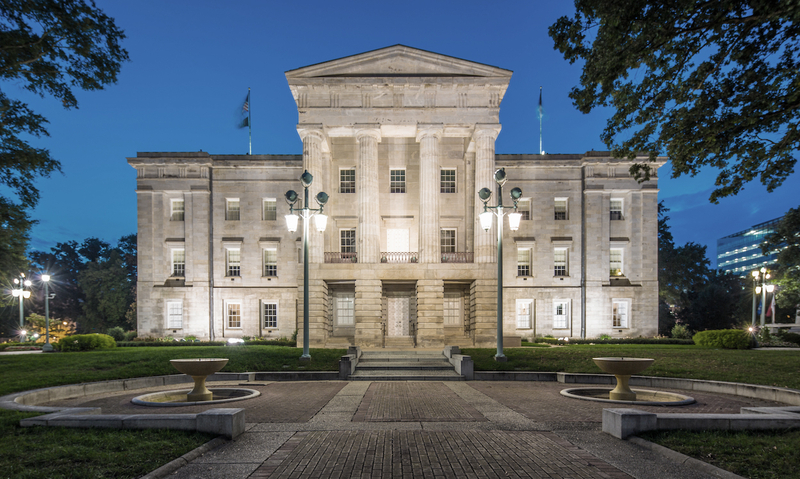Gov. Roy Cooper’s budget would fund Leandro comprehensive remedial plan


Gov. Roy Cooper’s recommended budget for 2023-25 provides $677.8 million to pay for years two and three of a court-ordered school improvement plan stemming from the state’s long-running Leandro school funding lawsuit.
Superior Court Judge David Lee, who oversaw the case until March 2022, ordered the state in 2021 to transfer $1.75 billion to pay for the second and third years of an eight-year $5.6 billion plan developed by an outside consultant.
State officials have said that $677 million is what is students are still owed after factoring in funding from the past two budgets.
Lee died in October due to complications from cancer. Chief Justice Paul Newby assigned Superior Court Michael Robinson to the case in March 2022. Superior Court Judge James Ammons was assigned to the case in December.
Ammon’s has asked defendants and plaintiffs in the case to file briefs explaining their positions on remaining funding amounts in advance of a hearing Friday to discuss how much money must be transferred to fulfill year three of the remedial plan.
In total, Cooper’s budget provides $4.5 billion to fully fund years four and five of the plan. That includes $2.5 billion to ensue “fair and equitable” distribution of financial resources; $943.5 million to expand early childhood education; $170.5 million to improve the state’s teacher and principal pipelines; $141.4 million to support low-performing schools and districts and $102 million to create guided pathways from high school to postsecondary education and career opportunities.
Cooper, a Democrat, hinted during his State of State address last month that his budget would support fully funding the remedial plan, which calls for high-quality teachers, principals and support staff in all of the state’s public schools.
The governor’s budget includes an additional $1.8 billion to help recruit and retain high-quality teachers and administrators. Teacher and principal pay would increase an average of 18% over the next two years. The pay raise would move North Carolina from 32nd in the nation to 16th in teacher pay, Cooper said. The state would be first in the Southeast in teacher pay if the pay raise is approve, Cooper said.
The budget moves starting teacher salaries to at least $46,000 and increases teacher and school-based administrator salaries by 10% over the next two fiscal years.
“With 5,000 teaching vacancies across our state, we must provide teachers with the pay and respect they so richly deserve,” Cooper said.
Funding for the remedial plan has been a point of contention between Democrats and Republicans, with GOP leaders arguing that the courts do not have the authority to order the state to transfer money to pay for the remedial plan.
The N.C. Supreme Court upheld Lee’s order in November requiring the state to transfer money to pay for years two and three of the remedial plan to bring the state into compliance with its constitutional mandate to provide school children with sound basic education.
Republicans picked up two seats on the state Supreme Court in November. The new GOP majority voted 5-2 to reinstate a lower court order blocking the order that requires the state controller to transfer state money to pay for the remedial plan.
Former State Controller Linda Combs appealed Lee’s order, contending that it would be illegal to transfer money without the General Assembly’s approval. Her successor Nels Roseland has also argued against the transfer of money without lawmakers’ approval.
Roseland contends that “it would be fundamentally unfair for a court to subject him, his staff, and the recipient agency staff to criminal and civil liability before the basic elements of procedural due process were met including notice, an opportunity to respond, counsel, and the right to an appeal including a hearing on these issues.
The Leandro case began nearly three decades ago when school districts in five low-wealth counties sued the state, claiming that children were not receiving the same level of educational opportunities as students in wealthier counties. School districts in Cumberland, Hoke, Robeson, and Vance counties joined Halifax County in the lawsuit.
In 1997, the state Supreme Court issued a ruling, later reconfirmed in 2004, in which it held that every child has a right to a “sound basic education” that includes competent and well-trained teachers and principals and equitable access to resources.








